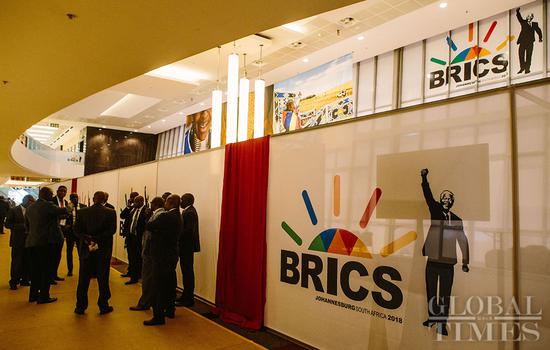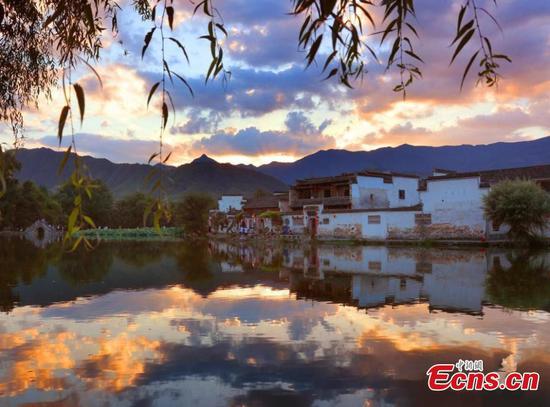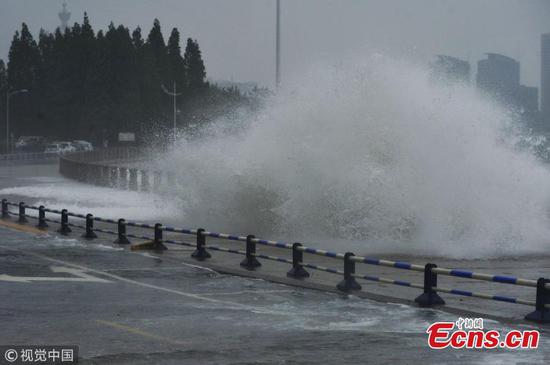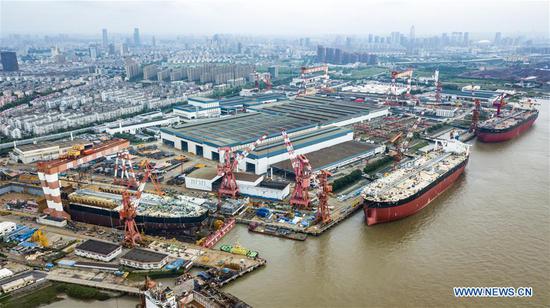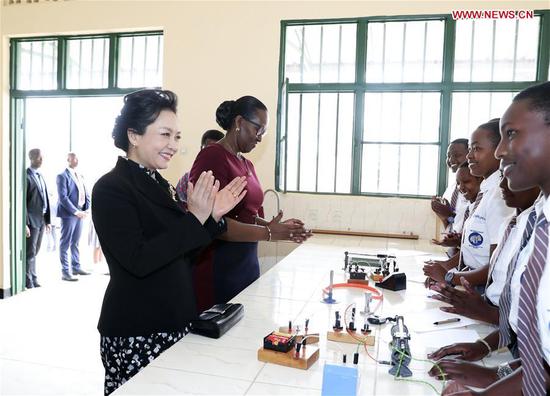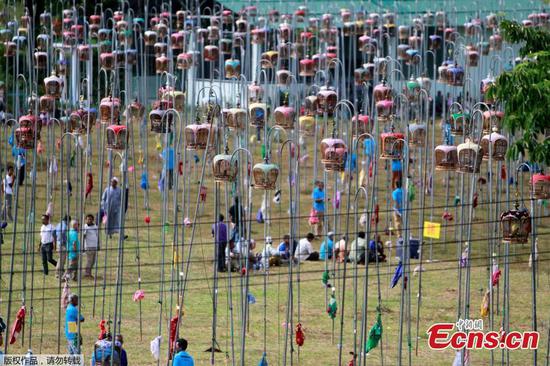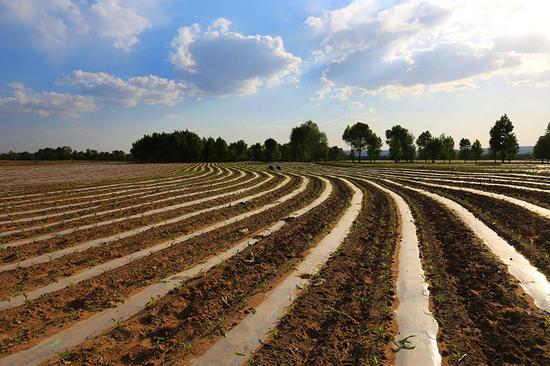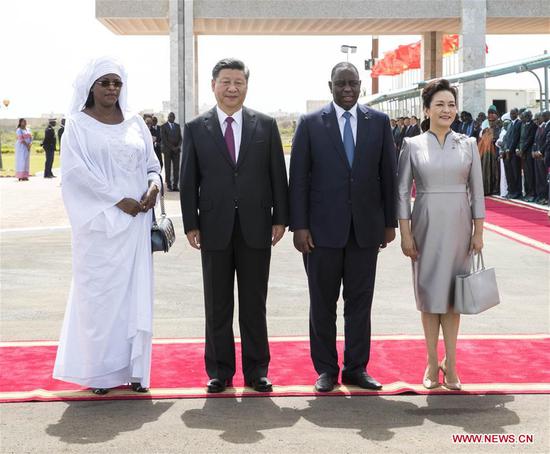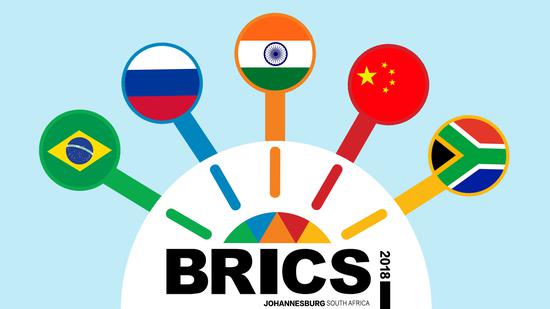
The 10th BRICS summit, which will be held in South Africa's Johannesburg from July 25 to 27, is going to be closely watched, as it comes amidst profound uncertainty about the future of the global political and economic order.
The world now faces challenges ranging from country-specific problems such as poverty, food crisis, and unemployment to issues of common concern like terrorism, climate change and biased global economic system.
So how will BRICS, the bloc that comprises Brazil, Russia, India, China and South Africa, cope with the problems? And what can we expect from the upcoming summit?
Safeguard global order under the shadow of Trump
The U.S. under the leadership of President Donald Trump could be a challenge to global order. It started trade frictions with China and the European Union, and withdrew from series of international organizations and treaties such as the UN Human Rights Council, the Paris climate accord, the Iran nuclear deal, and the UN Educational, Scientific and Cultural Organization (UNESCO).
Such acts of the U.S. are making the global situation volatile and unpredictable, and all countries, including the BRICS members, might be affected. The uncertainty, however, creates an opportunity for the bloc to act as a guardian for global order.
"Certain superpowers have been pursuing unilateralism, protectionism and self-interest," said Chinese Ambassador to South Africa Lin Songtian.
"The BRICS countries must send to the world a signal of justice, the rule of law, fairness and common interests," Lin pointed out.
He said this would be done within the context of the "second golden decade of cooperation" in which China is ready to work with the international community for a better, shared future, within "a global governance regime that is just and equitable."
Enhance Intra-BRICS cooperation
Chinese President Xi Jinping has pointed out that the BRICS countries are like five fingers, each with its own strength; When the BRICS countries come together, we form a fist that can punch.
In 2017, the BRICS accounted for 23 percent of the world economy and 16 percent of world trade, in addition to contributing more than 50 percent of global economic growth. The BRICS countries have not only been an important international multilateral economic and trade cooperation mechanism, but also have become close trading partners with each other.
According to BRICS 2018 official website, the bloc is intent to enhance economic cooperation, political and security cooperation, and people-to-people exchanges.
And the summit host South Africa has proposed some new areas of BRICS cooperation, including peacekeeping, vaccine innovation research, gender, tourism and the 4th Industrial Revolution.
Opportunities for Africa
As the theme for this year's summit goes "BRICS in Africa: Collaboration for Inclusive Growth and Shared Prosperity in the 4th Industrial Revolution”, it is expected that this year's meeting will bring great opportunities to Africa.
As the only African country in BRICS and host and chair of BRICS in 2018, South Africa is to set the tone and direction for members to make the right choice to drive Africa’s economic transformation, said Nadira Bayat, Program Director at Global Economic Governance Africa.
BRICS member countries founded the New Development Bank (NDB) in July 2014, with the objective of financing infrastructure and sustainable development projects in BRICS countries and other emerging economies and developing countries.
The establishment of the NDB and the more recent launch of the African Regional Centre (ARC) in Johannesburg, as the first regional office of the bank, is indisputable step towards bridging Africa’s infrastructure gap, said Bayat.
Leaders of other bloc members might signal their willingness to fund infrastructure projects on the continent during the summit, while China has already provided support via the Belt and Road Initiative.
Moreover, the upcoming summit will give South Africa and Africa an opportunity to learn best practices in entrepreneurship and innovation from the BRICS countries, said Guateng Premier David Makhura.
Advancing the 4th Industrial Revolution
Another focus of the 10th BRICS summit will be the 4th Industrial Revolution, which is also embodied in the theme of this year's summit.
The 4th Industrial Revolution is characterized by a range of new technologies that are fusing the physical, digital and biological worlds, impacting all disciplines, economies and industries, and even challenging ideas about what it means to be human, Klaus Schwab, founder and executive chairman of the World Economic Forum, explained in his book "The Fourth Industrial Revolution."
One of the new areas of BRICS cooperation proposed by South Africa is leveraging the Strategy for BRICS Economic Partnership towards the pursuit of Inclusive Growth and Advancing the 4th Industrial Revolution.
This is intended to foster discussions to address opportunities provided by the 4th Industrial Revolution, as a means of leapfrogging development stages and bridging the digital divide, the BRICS 2018 official website pointed out.
It also intends to bring a specific focus to the challenges presented by the 4th Industrial Revolution.
"In some instances, the breathtakingly vast and innovative technologies in artificial intelligence, robotics, the internet of things, autonomous vehicles, 3D printing and nanotechnology, have the potential for deepening inequality and unemployment, with particular risks for women in low-paid, poor quality jobs," Bayat opined.
Advancing cooperation and peer-to-peer collaboration on effective institutional and policy responses in these and other areas will help leverage the promise, and address the challenges presented by the 4th Industrial Revolution, she said.
By Meng Yaping









